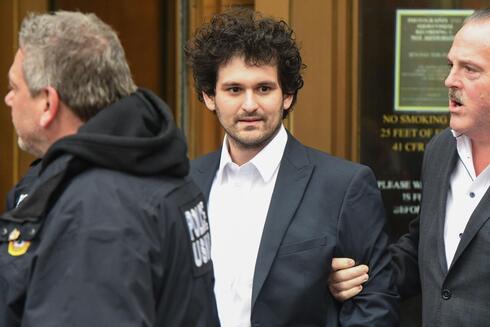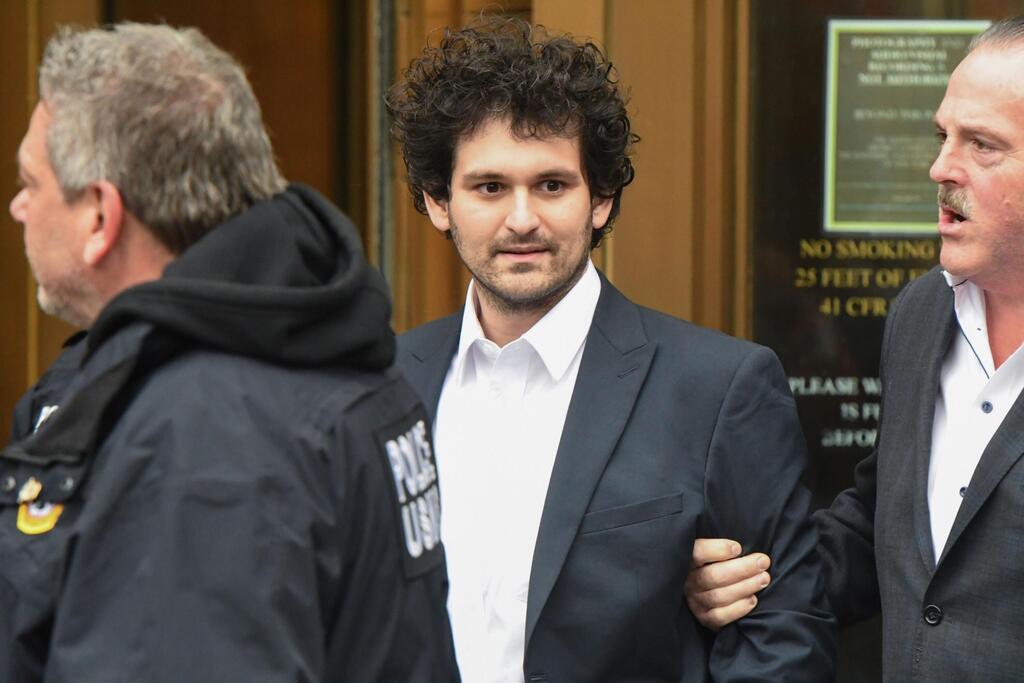
The Israeli startups that benefited from Sam Bankman-Fried’s investments
SBF’s portfolio, allegedly amassed through extensive fraud and the stealing of customer funds, includes around 500 companies, including Israeli crypto startups StarkWare and Solidus Labs
Sam Bankman-Fried, the founder of cryptocurrency exchange FTX, who faces eight counts of fraud, conspiracy, money laundering and illegal campaign contributions, invested in at least two Israeli startups, StarkWare and Solidus Labs, through his companies FTX Ventures and Alameda Research.
StarkWare and Solidus received funding that, according to U.S. investigators, was attained by Bankman-Fried and his colleagues through extensive fraud and the stealing of customer funds. These two Israeli-founded companies are part of a list of around 500 companies in which Bankman-Fried, who was extradited from the Bahamas to the U.S. last week, had holdings, reaching a total valuation of around $5.4 billion.
According to U.S. authorities, FTX stole a total of $10 billion of customer funds, with part of that fortune being lost by Alameda through risky trades, and part being used to purchase luxurious real estate for personal use, political and social donations, and investments in crypto, trading, and media organizations.
The portfolio list of 500 companies, first revealed by the Financial Times, was held through 10 different companies and was used by FTX as collateral in its last ditch attempt to raise funding and avoid bankruptcy in November. The biggest holdings include stakes in crypto mining company Genesis Digital, VC giant Sequoia, Anthony Scaramucci’s investment firm SkyBridge, and SpaceX.
According to the list, companies controlled by SBF invested at least $14 million in StarkWare over three funding rounds, including its past two rounds. StarkWare, which develops scalability and privacy solutions for blockchain technology, raised $100 million at a valuation of $8 billion this past May. The Netanya-based company raised $50 million at a $2 billion valuation last November.
StarkWare was founded in 2018 by Uri Kolodny (CEO), Eli Ben-Sasson (President), Michael Riabzev (Chief Architect), and Alessandro Chiesa (Chief Scientist). The company aims to use zero-knowledge proof to solve the inherent problems of blockchains. The company employs over 80 people, most of them out of its Netanya office.
SBF also purchased Starknet tokens, which are still not available for trading, at a total of at least $33,000. Other than Alameda, StarkWare’s investors also include Greenoaks Capital, Coatue, Sequoia, Founders Fund, Paradigm, and Three Arrows, which has also since gone bankrupt.
The investment in Solidus Labs was smaller and is believed to be around $500,000, made during the company’s $20 million Series A in May 2021. The company also raised a $45 million Series B this past May, led by Liberty City Ventures, and including Evolution Equity Partners, Declaration Partners, Hanaco Ventures, and Avon Ventures.
Solidus was founded in 2017 by Asaf Meir, Chen Arad, and Praveen Kumar. It employs around 100 people, mostly in Israel, and provides a crypto-native risk monitoring suite that serves crypto and DeFi platforms, financial institutions, and regulators. FTX was one of the company’s clients.
FTX’s new management has already announced that it expects to receive back any political contributions made by SBF, but the likely outcome for the money invested in such companies as StarkWare and Solidus is that the holdings will either be sold on or bought back by the companies.
StarkWare declined to comment on the matter. Solidus stated that the services provided by the company aren’t connected to FTX’s risk management and ultimate collapse, and said: “FTX invested less than 1% of the funding received by Solidus to date, alongside many investors, including former regulators, banks, financial institutions and venture capital funds. The company has always called for increased regulation in crypto.”














